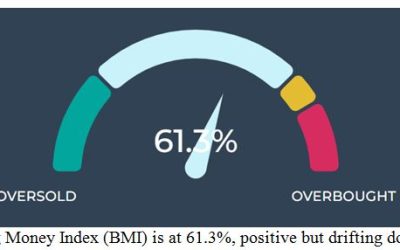by Louis Navellier
September 30, 2025
President Trump’s latest surprise new bombshell was an executive order last week to raise the application fee on new H-1B Visas to $100,000. That has raised some eyebrows, since it flies in the face of the fact that the H-1B program is already dominated by technology workers that frequently apply from outsourcing firms in India and China – the nations that supply the bulk of workers to many big (Magnificent 7) technology firms.
India dominates the H-1B Visas applications, followed by China. In fact, Tata Consultancy Services Limited is the second largest applicant for H-1B Visas, so their outsourcing business will be impacted.
The irony is that there may not be many lucrative technology jobs awaiting these immigrants, since three Stanford University economists recently did a study on why recent computer science graduates are having a hard time finding jobs. Computer science dominates Stanford’s undergraduates, so the tough local job market is hindering some Stanford graduates. Complicating matters further, technology layoffs and outsourcing demand appears to have narrowed the traditional job opportunities for computer science graduates.
I suspect that since most leaders in the technology industry have easy access to President Trump, the fee for H-1B Visas may fall after the outsourcing to India and other countries slows down and the H-1B Visa program is reformed. In the meantime, there are a lot of computer science graduates looking for jobs now.
Most U.S. Economic Indicators Point to Rapid GDP Growth
Last Friday, the Commerce Department reported that the Personal Consumption Expenditure (PCE) index for August was in-line with the economists’ expectation of a 0.3% rise. The core PCE, excluding food and energy, was also in-line with economists’ consensus expectations of a 0.2% increase. In the past year, the PCE and core PCE have risen by 2.7% and 2.9%, respectively. Due to these modest (and in-line) gains, another Fed rate cut is possible if the September payroll report is well below consensus expectations.
In other news, the Commerce Department announced on Thursday the August trade deficit plunged 16.8% to $85.5-billion, as imports declined 7% to $261.6-billion and exports fell 1.3% to $176.1 billion. Due to a lower trade deficit, economists should be revising their third-quarter GDP estimates higher.
Speaking of GDP, the Commerce Department on Thursday revised its second-quarter GDP to a 3.8% annual pace, up from previous estimates of 3.3%. The primary reason for the upward revision was that consumer spending was revised to a 2.5% annual pace, up from a 1.6% annual pace previously reported.
The weak link in the GDP report was residential investment, which declined at a 5.1% annual pace. Clearly, the housing market and existing home sales remain a major drag on overall economic growth.
However, the Commerce Department announced on Wednesday that new homes sales in August surged by 20.5% to an annual pace of 800,000, the highest annual pace in three years. Aggressive discounting by home-builders and lower mortgage rates were cited as primary reasons for surging new home sales.
This came as a massive surprise, since economists were expecting new home sales to decline to a 650,000 annual pace. The National Association of Home Builders said that 39% of builders cut new home prices to promote sales, with the average discount being 5%. Median home prices for new homes rose to $413,500 in August, up from $395,100 in July, so the more expensive range of new homes are being sold.
On Thursday, the Commerce Department said that durable goods orders rose 2.9% in August, due largely to a 50% surge in military equipment as well as a 7.9% increase in transportation. Excluding the volatile defense and transportation sectors, durable goods orders still rose by a respectable 0.4% in August. Excluding defense orders, durable goods orders rose by an impressive 1.9% in August. Core durable goods orders rose 0.6% in August, so no matter how you slice it, the August durable goods orders report was impressive, so I expect that economists will be revising their third-quarter GDP estimates higher.
Also, on Thursday, the Labor Department reported that new unemployment claims declined to 218,000 in the latest week, down from 232,000 in the previous week. This was better than expected since economists expected a rise to 235,000. The four-week moving average in new jobless claims declined to 237,500, so the recent spike in new jobless claims – to their highest level in four-years – appears to be an outlier.
Global News and Corporate Updates
President Trump confronted the U.N. General Assembly for about an hour in a “shock and awe” speech that criticized immigration, green energy and even the mayor of London. Trump said, “Immigration and the high cost of so-called green, renewable energy is destroying a large part of the free world and a large part of our planet.” Trump elaborated by adding, “Countries that cherish freedom are fading fast because of their policies on these two subjects. Both immigration and their suicidal energy ideas will be the death of Western Europe.” Interestingly, Trump also took a dig at London Mayor Sadiq Khan by calling him a “terrible mayor,” adding that, “Now they want to go to Sharia law, but you’re in a different country. You can’t do that.” Khan’s office responded by saying, “London is the greatest city in the world, safer than major U.S. cities, and we’re delighted to welcome the record number of U.S. citizens moving here.”
In other global news, North Korea’s Kim Jong Un said he would sit down with President Trump but would not discuss giving up nuclear weapons. Since the Trump Administration is seeking to penalize countries that do business with Russia, like India, it will be interesting to see if there will be a meeting with North Korea. Achieving peace is complex, but I suspect a meeting with North Korea may occur, especially if it can curtail the troops and weapons North Korea has sent to fight for Russia in Ukraine.
France’s budget impasse is raising demands for a wealth tax, which is being called a “soak-the-rich” relic of France’s socialist past. This wealth tax is being pushed by French economist Gabriel Zucman, a former adviser to U.S. Senators Bernie Sanders and Elizabeth Warren. Specifically, Zucman wants to impose a 2% tax on the assets of people with net worth of 100 million euros ($118-million) or more. Zucman calls this a matter of “fiscal justice.” Apparently, Zucman aims to push his wealth tax movement worldwide.
Turning to business news, Nvidia got the tech sector excited last week after announcing that it intends to support OpenAI’s next-generation AI infrastructure for training and running models by providing at least 10 gigawatts of its systems. According to Nvidia, this translates to millions of GPUs! The other big AI news last week was that Alibaba said it would invest more than $53 billion in AI and cloud infrastructure.
Last Thursday, President Trump announced on Truth Social that effective October 1st, the U.S. will impose a 100% tariff on “branded” pharmaceuticals if they are not made in the U.S. These tariffs do not apply to generic pharmaceuticals. He also stated that if pharmaceutical companies are “breaking ground” on new facilities are they are “under construction,” the 100% tariffs will be waived. Clearly, the Trump Administration is striving to divert drug manufacturing from China, Ireland and Switzerland to the U.S.
After the $7,500 EV tax credit expires at the end of September (today), it will be interesting to see what happens to EV sales in October. For instance, lower-cost EVs, like the Tesla Model 3s, are expected to dominate EV sales moving forward. Interestingly, Berkshire Hathaway sold its investment in BYD, which was dominating low-cost EVs globally. Although President Trump has ended EV tax credits and carbon credits from other automakers – which enriched Tesla – the European Union (EU) remains committed to “EVs only” by 2035, despite calls from BMW and Mercedes to curtail the EU mandate.
I should add that at the Charlie Kirk memorial service in Arizona, Elon Musk was seen chatting with President Trump, so apparently the rift between Musk and President Trump may be on the mend.
Navellier & Associates; own Nvidia Corp (NVDA), in managed accounts, and a few clients own Tesla (per request). Navellier & Associates does not own Berkshire Hathaway (BRK.A), or BYD Company (BYDDY), in managed accounts. Louis Navellier and his family personally own Nvidia Corp (NVDA), via Navellier managed accounts and Nvidia Corp (NVDA), in a personal account. They do not own Tesla (TSLA), Berkshire Hathaway (BRK.A) or BYD Company (BYDDY), personally.
The post 9-30-25: Skilled Tech Workers Are Losing Their Jobs, Mostly Due to AI appeared first on Navellier.





